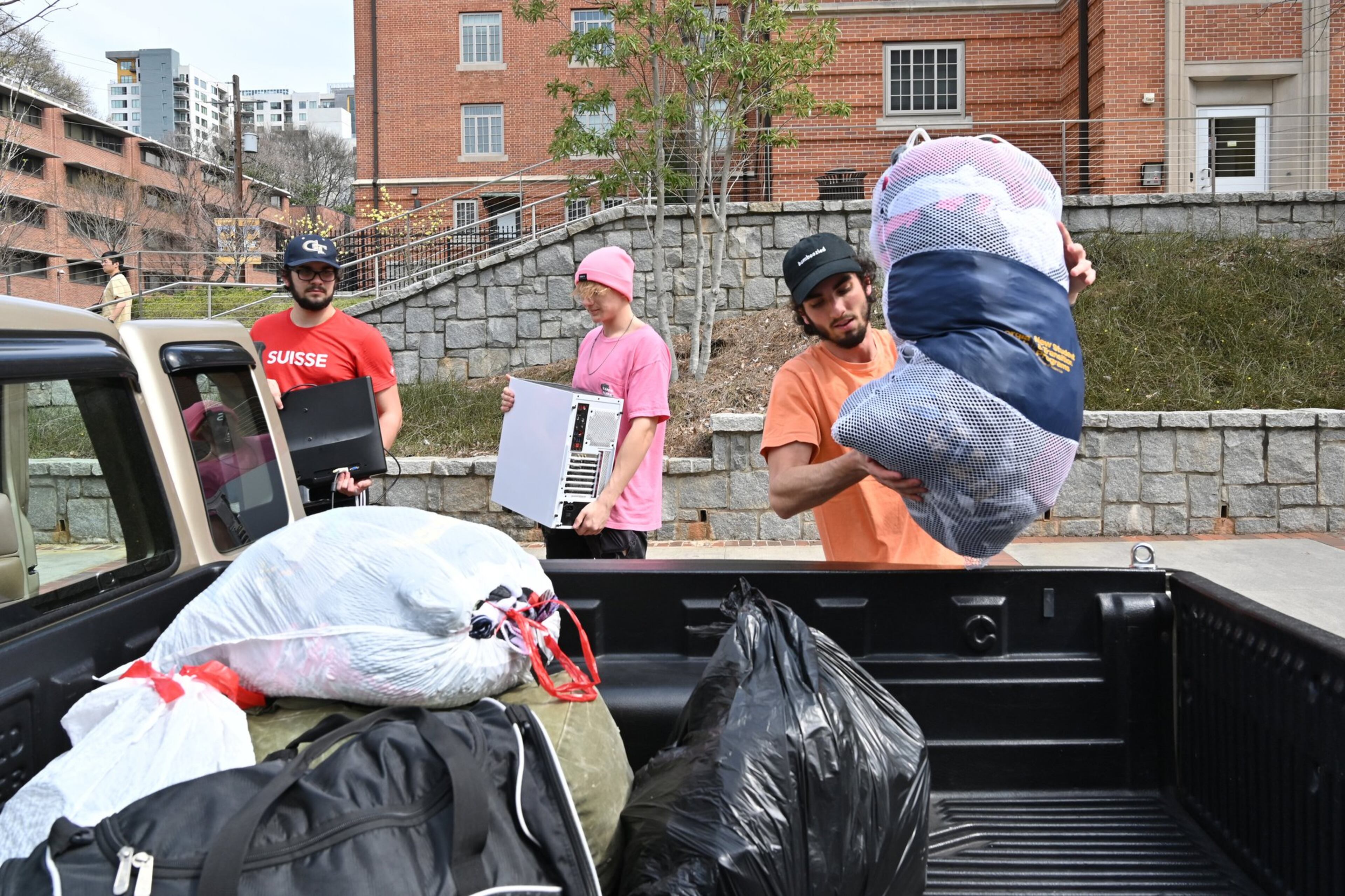Georgia Tech students want more help for international students

More than 1,000 Georgia Tech students have signed a petition demanding administrators help its international students facing hardships brought on by the coronavirus pandemic.
They want the school to expand financial aid and scholarship opportunities, and share plans for how those students can learn remotely if they can’t return to campus for the fall semester.
Some of the international students left the country when in-person instruction ended in March, but are unsure if they can return. Others are still here, but need funding to be able to stay. All are seeking answers about how the school will conduct classes.
“Georgia Tech’s motto of Progress and Service is reflected in the diversity of its student body, which hails from over 100 countries and across the United States,” the petition says. “And as such we believe it is imperative that to cultivate an institutional culture of academic and inclusive excellence, the Institute must consider the disproportionate impact of COVID-19 on its international students.”

Georgia Tech, by far, has the largest international student enrollment of any public college or university in the state. More than 10,000 of its 36,500 students last year were listed in the “out of country” category. Its president, Ángel Cabrera, was born in Spain and earned his master’s and doctoral degrees from Georgia Tech.
Eric Fan, 20, a mechanical engineering student who lives in Sydney, Australia, signed the petition. He wants clarity on contingency plans if he can’t return to campus.
“It’s just a whole big question mark right now,” he said.

Georgia Tech held a virtual town hall Thursday for its current international students in which officials answered student questions and discussed ways they’ve tried to help, such as pushing for students who couldn’t return to their countries to remain in on-campus housing lobbying federal lawmakers to remove some red tape in the visa approval process.
The school posted new information Thursday afternoon notifying students they can take courses at its campuses in China and France, they can seek deferrals for up to a year and other updates.
> RELATED: Trump officials extend visa ban to non-immigrants
> RELATED: Fewer international students coming to U.S., report shows
Georgia Tech is waiting on federal and state guidelines to determine more about fall instruction and housing plans for international students.
“We care. We are listening. We are advocating on your behalf each and every day,” Tina Rousselot de Saint Céran, Georgia Tech’s director of International Student and Scholar Services, said during the hourlong meeting.

Many of the students are like Fan. They want to be in America, and like studying here.
A large number of international students participate in key research at Georgia Tech. These students also pay more to study here. Tuition, on-campus housing and other fees for out-of-state Georgia Tech students was about $50,000 last year, about $20,000 more than similar costs for in-state students.
A tuition drop could help, since many international students take out loans for tuition, said Neel Naik, 20, an industrial engineering student from Mumbai, India.

“It’s proportionately a bigger chunk of our income than non-international students,” said Naik, whose parents are paying his tuition.
Georgia Tech's tuition is under the purview of the state's Board of Regents, which voted in April not to raise tuition for any students there and throughout the University System of Georgia.
International student enrollment in the United States has declined in recent years, and is expected to drop again for the upcoming academic year. The Trump administration’s recent decision to temporarily suspend work visas for foreigners to reduce the spread of COVID-19 will likely weaken international student interest in studying in America and result in lost revenue from these students, Moody’s, the financial services company, said in a report Wednesday. International students can still study in the U.S. through other visa programs.
The petitioners want Georgia Tech to expand its online offerings or make it easier for students who may not be able to return and must take classes remotely. Fan said some online lectures from his professors began before dawn due to the time difference, which for many students is 12 to 14 hours. Officials recommended students seek accommodations with their professors.
“That has a toll on how effective you can be,” said Naik, who is currently living in Atlanta, but has classmates living overseas who’ve spoken to him about the issue.



